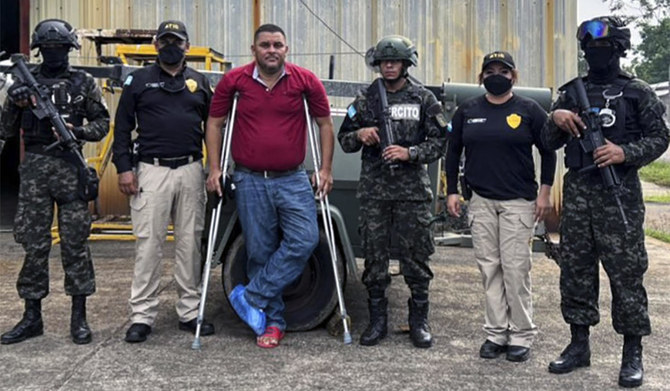TEGUCIGALPA: A mayor in Honduras was arrested on Sunday on charges of working with drug cartels to smuggle 90 tons of cocaine to the United States by boat and plane.
Mayor Wilmer Manolo Wood of Brus Laguna, in the remote Mosquitia region that borders Nicaragua, was taken into custody, said Jorge Galindo, a spokesperson for the Honduran prosecutors’ office. He is accused of working with three cartels: Los Piningos, Los Yanez and Los Amador.
Neither Wood nor his lawyers were immediately available for comment.
Galindo said that independently of the three cartels, Wood personally received 30 tons of cocaine and moved it through Honduras so it could be transported to the United States.
Authorities believe Wood became involved in drug trafficking over 15 years ago and began running operations on his own account eight years ago.
The public ministry said that Wood was involved in the docking of 15 boats that came from Colombia and passed through Honduras on their way to the United States.
The arrest in La Ceiba, a city in northern Honduras, came amid a series of raids and inspections along the Atlantic coast.
Local authorities believe Mexican drug cartels supplying the United States bring cocaine through Central America and Mexico after it is carried from Colombia by boat or plane to the Mosquitia region and other parts of Honduras’ Atlantic coast.
Former President Juan Orlando Hernandez was extradited to the United States on drugs and weapons charges last year.
Current President Xiomara Castro is meanwhile pushing a crackdown on crime and has repeatedly extended emergency powers across the country.














